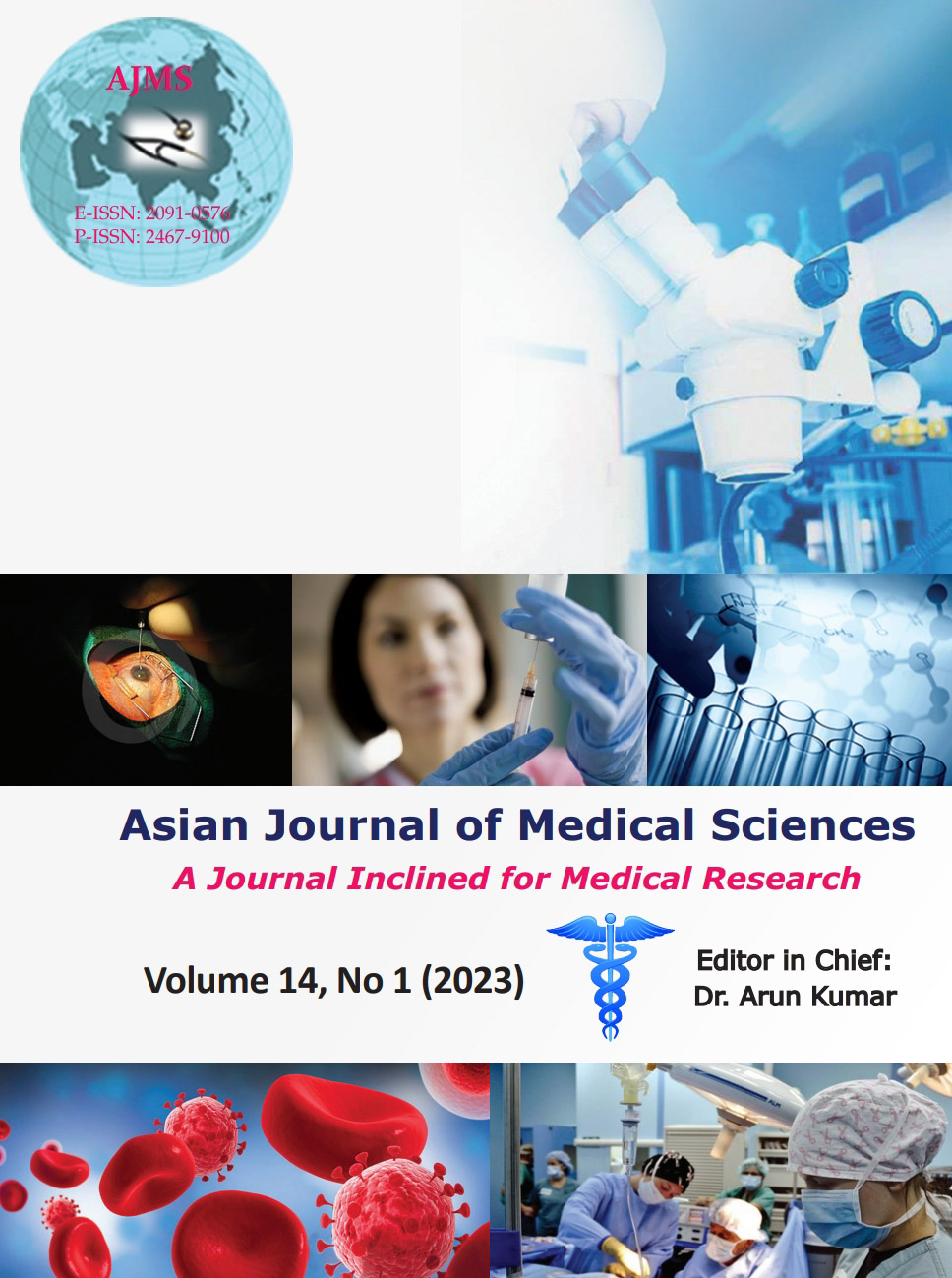Study on role of fibular graft in non-union and complex fractures of long bone
Keywords:
Long bone defect; Fibular graft; Functional evaluationAbstract
Background: Road traffic injuries are the seventh most common cause of long bone fractures. Following high velocity limb trauma, the defects in the long bone are usually associated with appreciable soft-tissue losses. These open long bone injuries always require multidisciplinary managements to reconstruct the composite defects of bone and soft tissue.
Aims and Objectives: The aim of the study was to find out radiological and clinical outcome, complications, and union time in complex and non-union fractures of long bone managed by fibular graft.
Materials and Methods: Out of 50 cases, 40 cases were of complex fractures and ten cases were of non-union. We used Fibular strut grafts in reconstruction of bone defects and soft tissue injury.
Results: Thirty (60.0%) had excellent functional outcome, 10 (20.0%) had good, 6 (12.0%) had satisfactory, and 4 (8.0%) patients had poor outcome. Main complications were non-union 2 cases and 3 cases of superficial wound infection, which subsided by wound dressing and intravenous antibiotic treatment.
Conclusion: Free fibular grafting has been proven to be an ideal choice in the management of large segmental bone defects as well as in situations of biological failure of bone healing.
Downloads
Downloads
Published
How to Cite
Issue
Section
License
Copyright (c) 2022 Asian Journal of Medical Sciences

This work is licensed under a Creative Commons Attribution-NonCommercial 4.0 International License.
Authors who publish with this journal agree to the following terms:
- The journal holds copyright and publishes the work under a Creative Commons CC-BY-NC license that permits use, distribution and reprduction in any medium, provided the original work is properly cited and is not used for commercial purposes. The journal should be recognised as the original publisher of this work.
- Authors are able to enter into separate, additional contractual arrangements for the non-exclusive distribution of the journal's published version of the work (e.g., post it to an institutional repository or publish it in a book), with an acknowledgement of its initial publication in this journal.
- Authors are permitted and encouraged to post their work online (e.g., in institutional repositories or on their website) prior to and during the submission process, as it can lead to productive exchanges, as well as earlier and greater citation of published work (See The Effect of Open Access).




